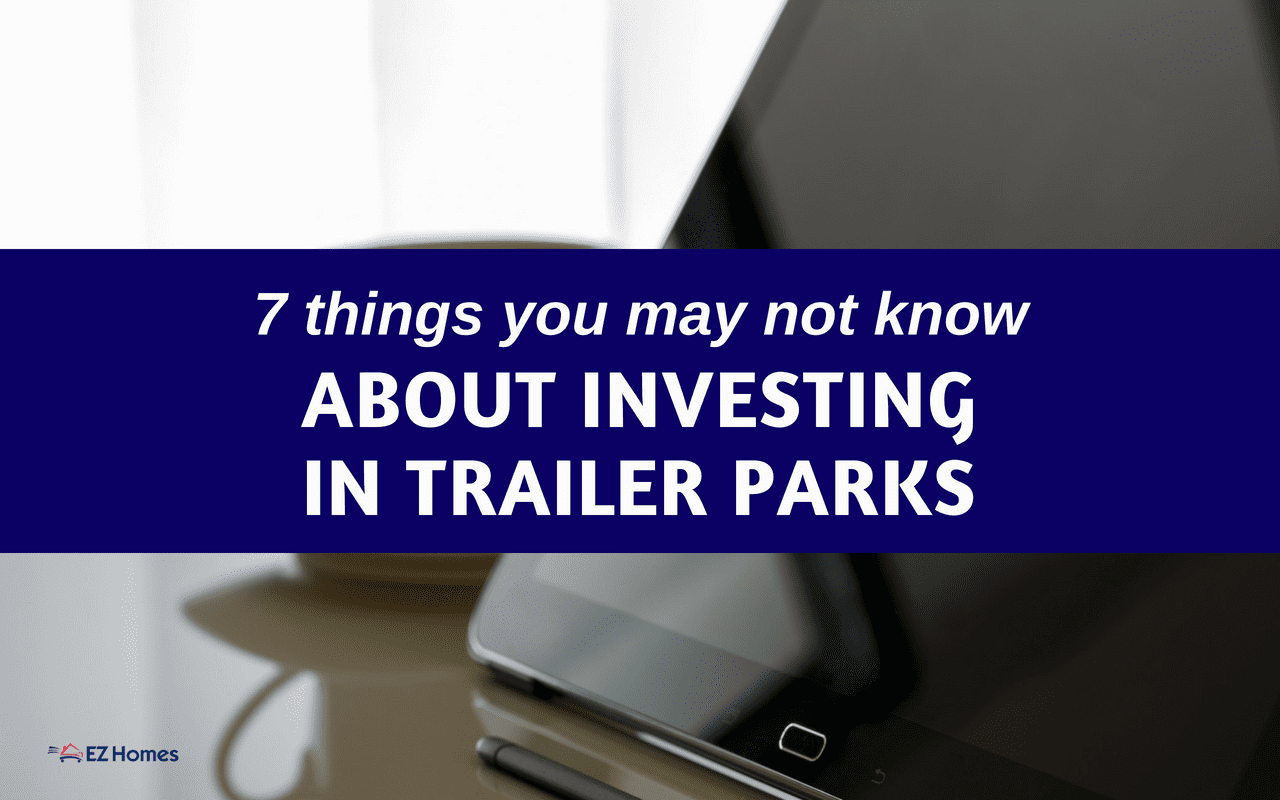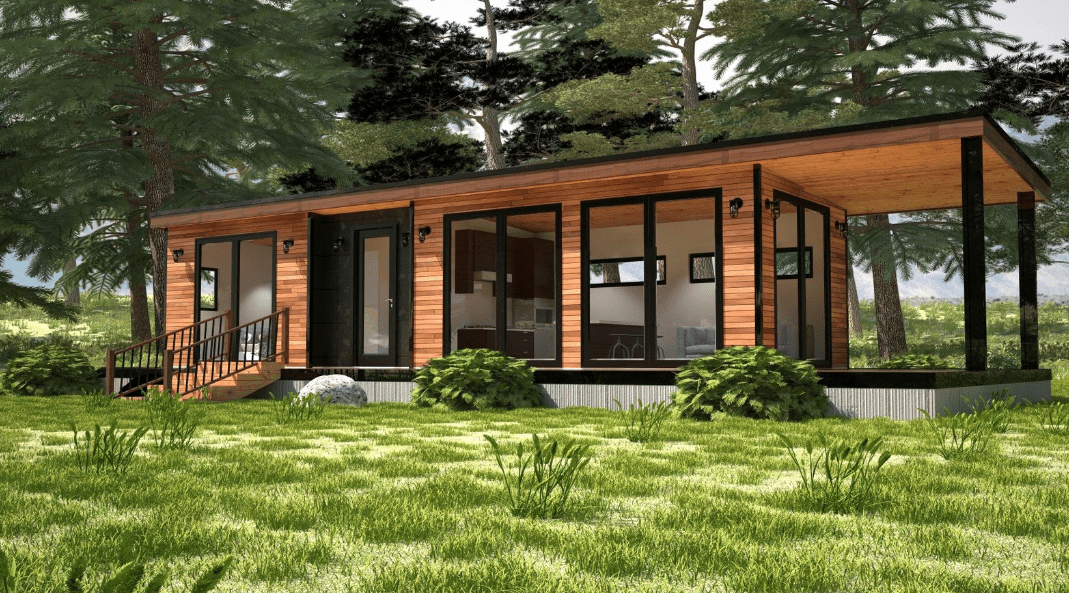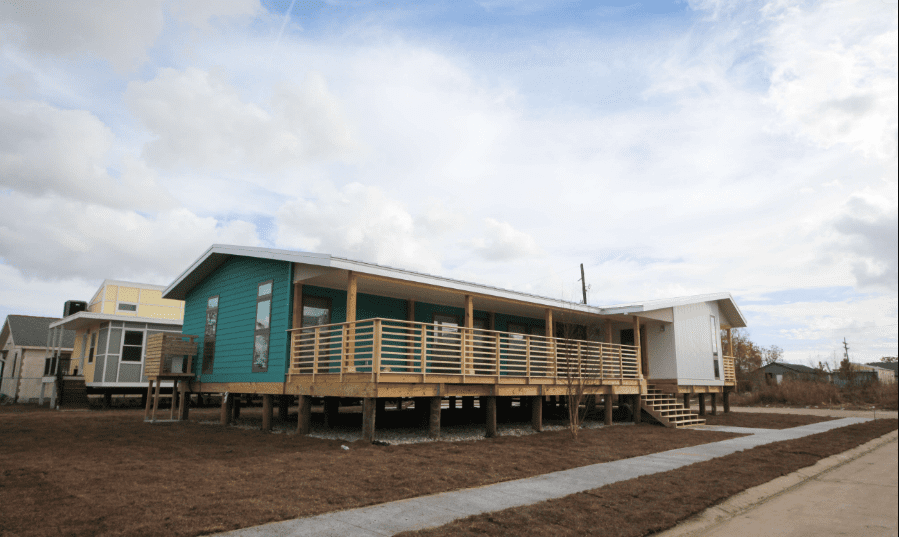We all know about real estate investing. It’s been one of the most sought-after and most trusted forms of investment. At least for the better part of the last century. As such, there is a huge amount of resources as well as real-world examples to draw from for information and guidance. The same can’t be said for investing in trailer parks. Even though your interest might have been piqued by the positive things you’ve heard.

In this article, we’ll shine a light on this industry that seems shrouded in mystery to those who aren’t experienced or involved in it just yet. Many of these lessons are usually only learned after stubbing your toes a few times or after long periods of frustration. So, take a shortcut by becoming aware of these little-known facts right from the very beginning.
Mobile home park tenants are more reliable than you think
No matter at what level you invest, your tenants will always be a concern. After all, it’s impossible to generate a consistent income or profit. Especially if you constantly have to struggle with tenants leaving, not paying their rent, or damaging the property.
Consider how trailer parks are still portrayed and the stereotypes that surround them and their occupants. It’s no wonder this is one of the first concerns people bring up. However, there are a number of reasons why this negative perception is wrong in most cases. Additionally, why mobile home parks tenants are more reliable than you think:
- Mobile homes aren’t that mobile: There’s a reason why mobile homes today are officially known as “manufactured housing”. They aren’t really that mobile. It’s prohibitively expensive and risky to move a home, which means most tenants stay put and most homes never move.
- They have no alternative: With an average rent of around $600 for a mobile home in a park versus $1,200 for an apartment, few tenants are left with other alternatives that will offer them the same living standard, if any.
- Trailer parks are no longer only for “poor people”: The U.S. is in the grip of an affordable housing crisis as a result of increasing housing costs where almost 25% of the population can only afford $500 or rent a month. This effect dominoes up into society and you now have previously middle-class families who now look to mobile homes as an acceptable alternative.
Mobile home demand is at a high
The last point in the previous section is probably the most poignant factor: more and more people are opting for mobile home park living. Furthermore, this leads to an increasingly diverse demographic of residents. You get everyone from fresh grads to retirees to typical suburban American families and everything in between.
But, what is driving this demand?
It’s basically a convergence of a number of factors. These just happen to fall at a time when real estate prices are squeezing hopeful homeowners. Among these are:
- Baby boomers heading to retirement: The notorious baby boomers are famous for being a massive generation that grew up in a time when it was easier to live the American dream. They are now heading to retirement. But research indicates most of them have not saved enough according to government recommendations. This results in many of this generation looking for cheaper alternatives to live out their golden years.
- The housing squeeze: Property prices have been rising at just above an average of 10% for decades now and salaries have not been keeping up. Currently, more than 10% of U.S. citizens are paying more than they should for housing. Plus the numbers are much worse in higher cost states.
Consider these additional factors
Then we need to consider what makes manufactured homes so attractive during this time. One factor is that the parks themselves are improving and are a far cry from the “trailer parks” of the past that come to mind. Secondly, the homes are getting more modern, attractive, and include more comfort. Thirdly, you can get a full-sized family home as well as a small piece of property for less than a cramped apartment in an inner-city neighborhood.

Photo Credit: Dwell
In short, today’s mobile home does an excellent job of replicating the suburban experience at less than half the price.
Investing in trailer parks have higher ROI’s than real estate
Most people can’t believe their ears when they hear this. After all, we have been conditioned to believe that nothing can outdo a real estate investment as long as you can afford to make one. And, while it’s true that real estate may outperform mobile home parks as an investment in the long run, there’s a number of sound reasons why the opposite is true in the short-term.
First of all, the initial cost of purchasing a mobile home park is much lower than the average real estate development. In fact, you can find smaller parks starting at less than $1 million. Whereas real estate developments or communities are usually well over $10 million. This massive disparity in cost means that you will be earning back your investment quicker. Even if a real estate investment generates more income.
Also, the maintenance costs of mobile homes and mobile home parks are much lower than that of real estate developments. This not only means that your day-to-day running costs are lower, but that it’s much cheaper to make some improvements or updates. Perhaps when you initially purchase the park.
A final factor is that many of these parks bought today by investors were owned by what are called “mom-and-pop” owners. These owners often didn’t manage their park as professionally as other agencies or investors. It’s often the case that you can immediately:
- Raise the rent
- Start collecting rent in a more consistent way
- Make some improvements to the park to increase its value
… and therefore the total rent you that you would ask for.
Mobile home park investing is less competitive than real estate
Although more and more people are starting to get interested in mobile home park investment, there is still nowhere near the intense focus on it that real estate enjoys. This is a good thing. As we all know, the more interest there is, the higher the demand, and the higher prices go. This also leads to a much more cutthroat market where you can have investments snapped up from under you if you just blink.
Because real estate prices are so high right now, there is even more intense competition whenever something affordable pops up, making it difficult to get a foothold. Meanwhile, there are plenty of stories of people who were interested in mobile home park investing who found one just sitting there, waiting to be sold.
This is partly because the manufactured home market is still fragmented. You can find big listing sites like MHVillage, MobileHomeParkStore, etc. But it’s still less common than the hundreds of real estate listing websites. There are also fewer agents who specifically (or even partially) deal in mobile home parks because they require separate licenses depending on which state you are in.
It may get harder to invest in the future
Despite the mostly positive outlook surrounding investing in mobile home parks, there is one big cloud cast over its future. That is that in current conditions, it’s not clear whether new mobile home parks are being built and whether their numbers might actually be decreasing. At first, this would seem at odds with the fact that it represents a good investment opportunity. Shouldn’t everyone be trying to build parks?

Mobile Home University explains in detail in this article why it’s so hard to build a new mobile home park. And why most avoid it. These obstacles are almost exclusively applicable to new mobile home parks. For example, banks won’t finance a park that isn’t “stabilized”, as they call it. In other words, it basically means there is 80% occupancy or more.
More unfortunate reasons …
Another big problem is that most cities won’t issue lands or permits on which to build mobile home parks. This is partly still due to:
- Negative stereotypes that surround mobile home parks
- The fear of it lowering property prices in the area
- The fact that many of these pieces of land are earmarked for big developments (malls, apartment complexes, etc.)
The latter is also one of the reasons why park numbers seem to be decreasing – many parks are being bought at exorbitantly high prices to be developed into something else. Few managers or investors can resist the temptation of selling at these massive prices.
While this is a good thing if you invest now, as it seems demand will only go up, it does call into question how easy it will be to continue investing in the future or expand your portfolio. It might even end up getting as competitive as the real estate market.
You don’t have to buy a park to invest
Although investing in trailer parks is not nearly as advanced or consolidated as the real estate market, it’s getting there slowly but surely. The market is mature enough that there are a number of ways to invest. Of course apart from the very hands-on approach of buying and managing your own park.
If you want to invest to generate a passive income, you still have a number of options:
- Buy parks and hire a management team: The biggest obstacle with this method is that you will need to have enough money to buy the park in the first place. However, there are plenty of deals out there. With a good plan in place, you might be able to secure financing. The biggest challenge is hiring a fantastic management team that is as committed and motivated as you.
- Invest in a fund: There are already investment funds out there whose portfolios consist primarily, or almost entirely, of mobile homes/mobile home parks. Investing like this will mean you have almost zero responsibilities or physical involvement. You just find a good fund, check their portfolio, and invest your money over a long period. Of course, your returns might not be quite as high and you have less control over it. But that’s a tradeoff you’ll have to make.
If parks are too expensive, you can invest in manufactured homes
Perhaps you’re not quite ready to jump into full-time mobile home investing. Maybe it’s because of misgivings of the industry, a lack of funds, or just general caution. Don’t worry- there is another option: invest in mobile homes.
People are still surprised at this concept since mobile homes are seen as cheap and temporary. However, that’s no longer always the case. Mobile homes have come a long way in the last few decades and are now built up to strict, federally enforced construction and safety standards. Consequently, they are much safer and more permanent than they use to be.
If you decide on mobile homes, then …
The easiest way to get involved is to start buying mobile homes in parks. Or begin filling empty lots in parks with your own homes. These homes can then be rented out to tenants who can either directly pay the lot rent themselves or pay it through you.

Photo Credit: Living Homes
You can build up a portfolio of homes in multiple communities in different areas to protect your assets and to diversify. With mobile homes going for on average $70,000 new and $50,000 used, it’s a much lower barrier to entry.
Invest in what works best for you
The most important thing to realize is that no type of investing is right for everyone. Whether it’s real estate investing or any type of mobile home investing, you should always do the research. Go the extra mile to establish if it suits your appetite for risk, if you have the budget to get started, whether it fits in with your short and long-term plans, and whether it’s something you want to be associated with.
Another crucial thing is that you’re aware of the risks when investing in trailer parks. We hope that this helps you make the right decision for you. Good luck!


